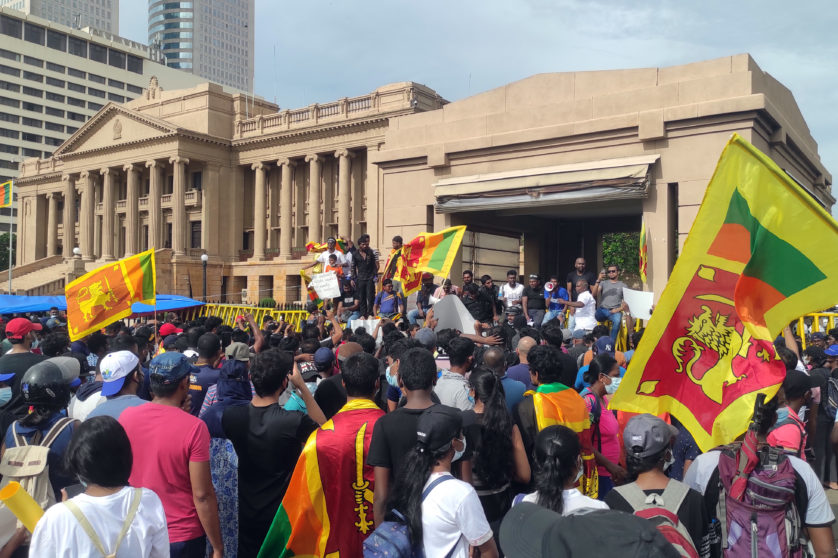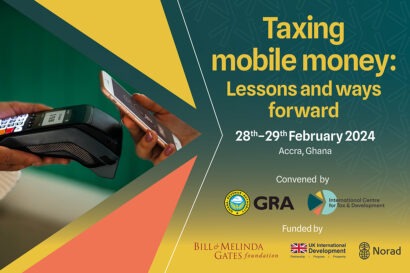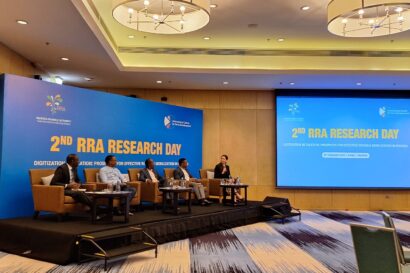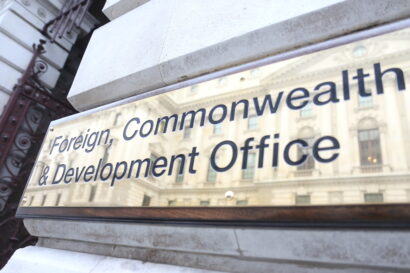Last week it was reported by the world’s largest credit rating agencies that Sri Lanka had defaulted on its national debt. This follows weeks of mounting protests by citizens against the Government led by President Gotabaya Rajapaksa as the country and its population of almost 23 million people face severe shortages of food, fuel and medicine.
Professor Mick Moore is a political economist, Professorial Fellow at the Institute of Development Studies and founder of the ICTD. A specialist on Sri Lanka for almost 50 years, his analysis of the current crisis provides critical insights on what caused it and what the impacts are on people’s day to day lives.
A ‘man-made and voluntary’ economic crisis
Sri Lanka now has debts of more than $50bn owed to international creditors with little means of re-payment. This debt has been accumulating over the past few years as the previous government borrowed large amounts of money for infrastructure investments. Problems started to arise when the government gave away a large amount of tax revenue in its 2019 budget. Falling tax revenues were already a long-standing issue in the country, as detailed in this 2017 paper published by ICTD on “The Political Economy of Long-Term Revenue Decline in Sri Lanka”.
This more recent drop in income from taxation along with a failure to acknowledge and re-structure the mounting debt earlier are the causes behind the current crisis, and not as some believe consequences of current global economic pressures relating to the Covid-19 pandemic and the war in Ukraine. Equally, this is not a trap set by China to ensnare Sri Lanka.
Professor Mick Moore speaking to the BBC’s Today programme, said: “This is the most man-made and voluntary economic crisis of which I know.”
Following the 2019 tax cuts, creditors became worried about whether they would get repaid. The rates at which the Sri Lankan government could borrow money naturally increased. Prof Moore continued “Instead of just reducing its investment and borrowing less, the government insisted on continuing to borrow heavily and repaying at higher and higher rates of interest.
“When the situation became so dire about a year ago, the government should have just gone to its creditors and said ‘Sorry, we can’t repay; let us reschedule the debts. Instead, they insisted in a macho fashion that they could repay in full. They went along this way until about six weeks ago when they had basically given away virtually all the foreign exchange they had.
Prof Moore said the situation resulted from “egregious incompetence” and that Sri Lanka now faces a “very critical situation”. Due to the fact that even if an agreement is reached with its creditors and the IMF, it is not clear who is going to fund essential imports for the next three months at least.
Impacts on everyday lives
Since the situation deteriorated in the past weeks ordinary people in Sri Lanka have been experiencing the consequences. Now the country has defaulted on its debt and spent its remaining foreign exchange, shortages of vital supplies such as fuel are even more at risk.
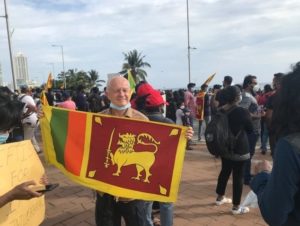
Prof Moore, who was in Sri Lanka six weeks ago, explains the range of problems impacting people’s day-to-day lives: “Fuel shortages mean it’s difficult for children to get to school, and difficult for people to get to work. There are very long queues to get LPG gas for cooking, and long and unpredictable power cuts. Apart from the enormous cost of things, it’s incredibly difficult to get on with doing basic things day to day, which is making people very angry.”
Impacts beyond Sri Lanka?
As this current crisis is caused by political decisions quite unique to the Sri Lankan government and to Sri Lanka, it is likely to be contained within the country rather than causing wider knock-on impacts.
Listen to Professor Moore expanding on his analysis on ABC’s Rear Vision episode ‘Sri Lanka – failed state’ and the episode of the BBC’s Today programme (starting at 15:00)
See also his interview with Mr. Junaid Qureshi, Director of the European Foundation for South Asian Studies below.
